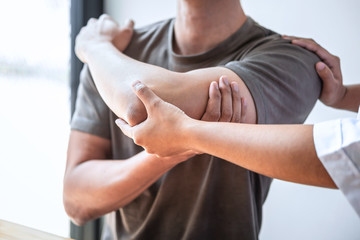How Posture Impacts Pain
 Practical Adjustments for Everyday Comfort
Practical Adjustments for Everyday Comfort
Posture is more than just standing tall or sitting up straight, it’s a critical factor in maintaining musculoskeletal health and preventing pain. Poor posture can lead to discomfort, chronic pain, and even injury over time. At our physiotherapy and exercise physiology clinic, we’re passionate about helping you understand the connection between how posture impacts pain and providing practical solutions for everyday comfort.
The Link Between Posture and Pain
Your posture affects how your body distributes weight and absorbs stress during movement and rest. Poor posture can cause:
- Muscle Imbalances: Prolonged slouching or awkward positions can overwork some muscles while weakening others, leading to pain and dysfunction.
- Joint Strain: Misaligned posture increases pressure on joints, particularly in the neck, shoulders, spine, and knees.
- Reduced Circulation: Poor posture can impede blood flow, causing fatigue and discomfort.
- Nerve Compression: Slouching or improper alignment may compress nerves, leading to tingling, numbness, or pain.
Common Posture-Related Pain Areas
- Neck and Shoulders: Forward head posture, often caused by prolonged screen time, strains the neck and shoulder muscles.
- Lower Back: Sitting with a rounded spine or standing with a tilted pelvis can place undue stress on the lumbar region.
- Hips and Knees: Poor posture during walking or standing can misalign the hips and knees, leading to discomfort and wear over time.
- Wrists and Hands: Improper workstation ergonomics can lead to repetitive strain injuries like carpal tunnel syndrome.
Practical Adjustments for Everyday Comfort
Improving your posture doesn’t have to be overwhelming. Small, consistent changes can make a big difference. Here are some practical tips:
- Desk Ergonomics:
- Adjust your chair so your feet are flat on the floor and your knees are at a 90-degree angle.
- Position your monitor at eye level to avoid straining your neck.
- Use a supportive chair with lumbar support to maintain the natural curve of your spine.
- Phone and Screen Usage:
- Hold your phone at eye level to avoid forward head posture.
- Take regular breaks from screens to stretch and reset your posture.
- Standing Posture:
- Distribute your weight evenly between both feet.
- Keep your shoulders relaxed and aligned with your hips.
- Engage your core muscles to support your lower back.
- Sitting Posture:
- Sit with your back against the chair and avoid slouching.
- Use a small pillow or rolled towel for extra lumbar support.
- Keep your feet flat on the floor and avoid crossing your legs for extended periods.
- Sleeping Posture:
- Use a supportive mattress and pillow to maintain spinal alignment.
- Sleep on your back or side, avoiding stomach sleeping, which can strain the neck.
How Physiotherapy Can Help
Physiotherapists are experts in assessing and correcting posture-related issues. Here’s how they can support you:
- Postural Assessments: Identify imbalances and areas of strain.
- Targeted Exercises: Strengthen weak muscles and improve flexibility to support better posture.
- Manual Therapy: Relieve tension and restore mobility in tight or overworked areas.
- Education: Teach you how to maintain proper posture during daily activities.
The Role of Exercise Physiology
Exercise physiologists focus on long-term strategies to improve posture and overall health. They can help by:
- Designing Personalized Programs: Create exercises that address your specific postural challenges.
- Functional Training: Improve how you move and perform tasks, reducing strain on your body.
- Lifestyle Coaching: Offer guidance on incorporating healthy posture habits into your routine.
Take the First Step Toward Pain-Free Living
Improving your posture is a journey that requires awareness, consistency, and support. By making small adjustments and seeking professional guidance, you can reduce pain and enhance your overall well-being. At our clinic, we’re here to help you every step of the way, offering tailored physiotherapy and exercise physiology services to address your unique needs.
Ready to take control of your posture and say goodbye to pain? Contact us today to book an appointment and start your journey to everyday comfort
If any of these signs sound familiar, don’t wait for things to get worse. At Pivotal Motion Physiotherapy, we’re here to help you feel your best, whether you’re recovering from an injury, dealing with chronic pain, or just want to move more easily. Get in touch with us today, and our team will be able to discuss with you in more depth on how we can help you. Book online or call us on 3352 5116.

 Practical Adjustments for Everyday Comfort
Practical Adjustments for Everyday Comfort 


